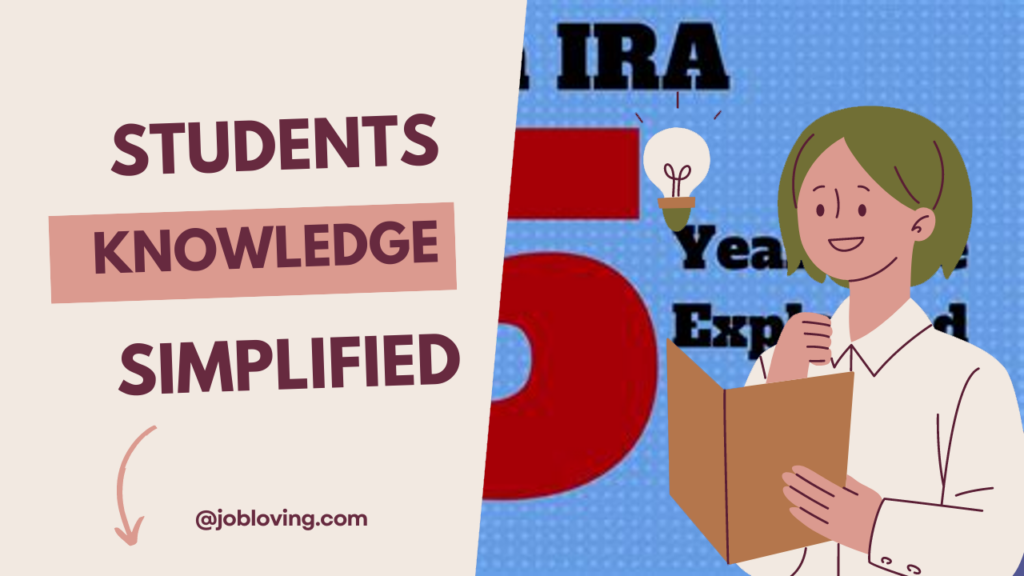The IRS Student Rule: Unlocking the Secrets of Tax Benefits for Scholars
In the world of taxes, navigating the often-murky waters of IRS regulations can be particularly daunting for students. Understanding the IRS student rule is essential not only for compliance but also for maximizing potential tax benefits available to students and their families. Whether you’re a full-time student trying to cope with tuition costs or a part-time learner finding your way, knowing what qualifies you as a student under IRS guidelines can save you a significant amount of money.
What is the IRS Student Rule?
The IRS defines a student based on several criteria, emphasizing that to qualify as a full-time student, an individual must be enrolled at a qualifying educational institution during any five calendar months of the year. The good news? These months don’t have to be consecutive! Let’s break down the critical aspects of the IRS student rule:
Enrollment Criteria for Full-Time Students
- Full-time Status: To be considered a full-time student, you must meet specific enrollment criteria set by the school you attend. This typically means enrolled in a minimum number of credit hours per semester.
- Timeframe Matters: Students must maintain their enrollment for a sufficient duration during any five calendar months out of the year, which enables non-consecutive enrollment periods.
School Standards
Schools need to meet several requirements for their students to qualify for the IRS student rule:
- Teaching Staff: The school should have a regular teaching staff, with defined course offerings accessible to students.
- Student Body: A “regularly enrolled student body” is essential, which means the institution must have a consistent number of students committed to their study program.
Variety of Educational Paths
Interestingly, the IRS also recognizes other educational forms. Students who are participating in on-the-job training or certain government training programs may also qualify under IRS definitions. This encompasses:
- On-farm Training Courses: If you’re partaking in on-farm training courses, they could count toward that full-time student status.
- Government Training Programs: Students involved in state, county, or local government training courses can also benefit from this classification.
Why Understanding the IRS Student Rule Matters
Navigating the IRS student rule is vital, as it has direct ramifications on tax benefits available to you. Here’s how:
Tax Exemptions and Benefits
Your status as a full-time student can influence your eligibility for various tax exemptions and benefits:
- Financial Aid and Tax Credits: Compliance with IRS standards affects your potential to qualify for financial aid and educational tax credits.
- Documentation Necessity: To substantiate claims for education-related tax exemptions, students should keep thorough documentation of their enrollment status. This could include enrollment letters, financial aid statements, and course schedules.
Financial Responsibilities and Liabilities
Awareness of the IRS student rule can also shield you from unexpected tax liabilities:
- Scholarships and Grants: Generally, scholarships and grants remain tax-free; however, there are nuances that may require inclusion as taxable income in specific cases.
- Determining the Need to File: Understanding your gross income and dependent status can guide you in determining whether you need to file a tax return.
Maximizing Tax Benefits
With a keen understanding of your enrollment status, you can leverage educational tax credits and deductions to reduce your overall educational expenses. Here’s what you need to know:
- Education Deductions: You can claim deductions for qualifying education expenses, perhaps easing some financial burdens.
- Credits and Programs: Various tax credits, like the American Opportunity Credit or Lifetime Learning Credit, exist specifically for students, which can significantly mitigate your education costs.
Common Misunderstandings About Student Tax Statistics
Many students often unclear about their specific tax situations fall prey to common misconceptions:
- Dependent Status: Students claimed as dependents on their parents’ tax returns may find themselves ineligible to claim their educational credits, making awareness essential.
- Part-Time Work Implications: Students working part-time may have withholdings that enable potential tax refunds, an opportunity that shouldn’t be overlooked.
Working with IRS and Financial Aid Resources
Engagement with IRS and educational resources can aid in understanding the complexities surrounding student tax rules:
- FAFSA and IDR Applications: The IRS collaborates with the Department of Education to streamline processes like the Free Application for Federal Student Aid (FAFSA) and Income-Driven Repayment (IDR) programs.
- Interactive Tax Tools: Utilizing tools such as the Interactive Tax Assistant can help grant clarity on your tax responsibilities, especially regarding scholarships and grants.
Take Charge of Your Financial Future
Being a student comes with various challenges, and understanding the IRS student rule is just one piece of the pie. Here’s how you can take proactive steps toward managing your educational finances:
- Document Everything: Keep meticulous records of all enrollment periods, receipts for educational expenses, and communications regarding financial aid.
- Explore Educational Savings Accounts: Utilizing 529 plans and Coverdell Education Savings Accounts can bolster your savings while providing additional tax benefits.
- Stay Informed: Awareness of educational tax benefits can empower students to make informed decisions about their finances, ultimately saving money and reducing stress.
Conclusion: Embrace Your Student Status
Navigating the IRS student rule is not just a matter of compliance; it’s a pathway to unlocking the numerous tax benefits that come with being a student. By understanding your eligibility, remaining engaged with your enrollment status, and leveraging educational savings, you can ease your financial burdens and focus on what truly matters: your education.
So, whether you’re binge-studying for finals, balancing part-time work, or grappling with tuition costs, remember this: knowledge is power! Equip yourself with an understanding of the IRS student rule, and you may just find that those tax savings significantly enhance your college experience!

